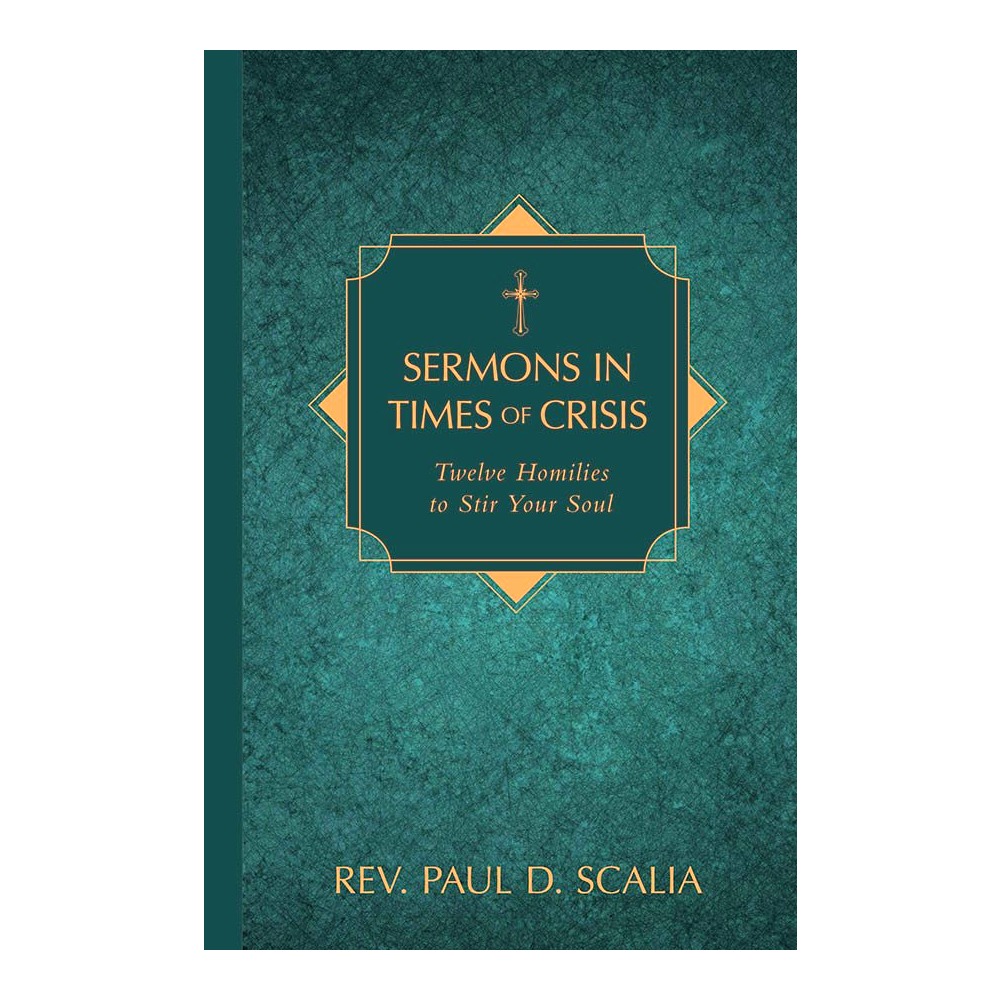Past Sermons for the Present: Lessons From St. Charles Borromeo and St. Ambrose
BOOK PICK: Sermons in Times of Crisis

Sermons in Times of Crisis
Twelve Homilies to
Stir Your Soul
Compiled by Rev. Paul D. Scalia
TAN Books, 2019
196 pages, $27.95
To order: tanbooks.com or
(800) 437-5876
Look to the pulpit for guidance in these 12 sermons, which range from the Church’s first centuries to the new millennium. Each of these classic homilies conveys the truth with boldness and compassion — and ultimately calls the Church to action in times of crisis.
Since the Church’s beginnings, preachers have spoken before congregations to instruct, encourage and, most importantly, commission them to “go in peace to love and serve the Lord.”
A sermon contains not only a lesson but a mission, and the purpose of a sermon is not merely to instruct or entertain but to call the faithful to action.

St. Charles Borromeo serves as an excellent example of doing this during the 1576 plague in Milan, when he urged his religious superiors to join him in personally tending to the sick and dying.
Father Paul Scalia notes the great impact of Borromeo’s actions upon the plague-stricken populous: “The sight of him moving among the dying, risking his life to bring the sacraments into places of death, gave even more power to his sermons. His ministry and life demonstrate how the preacher’s words strike deeper when preceded, accompanied, and followed by works of charity.” Our role as Catholics is not only to have faith, but to accompany it with works, as St. James encourages us in his letter (James 2:14).
This call to action is present in the sermons of our greatest leaders throughout Church history.
This book contains examples throughout history of leaders in the Church who spoke boldly about relevant issues.
St. Ambrose of Milan phrased it excellently during a Palm Sunday sit-in at a basilica to prevent its seizure by the imperial powers at the time: “You yourselves know that I am wont to show respect to our emperors, but not to yield to them.” He speaks the truth with compassion, a valuable example for any Catholic, whether we preach with words or simply with our actions.
This book presents these sermons in a relatable way for the laity as well as the clergy. A sermon, according to Father Scalia, should be adapted “to the capacity of the hearer.”
Although the sermons included in this book were delivered in the distant past, they are still relevant to some of the crises that we confront in modern times.
To assist the reader, Father Scalia gives an explanation of each sermon in its historical context, something that I found useful.
This compilation of sermons, according to Father Scalia, conveys much-needed truth and empowerment for Catholics during a time of crisis.
It is gratifying to know that the leaders in the Church’s past are still able to nourish the Church’s flock in the present.
writes from
Greenfield, Wisconsin.












